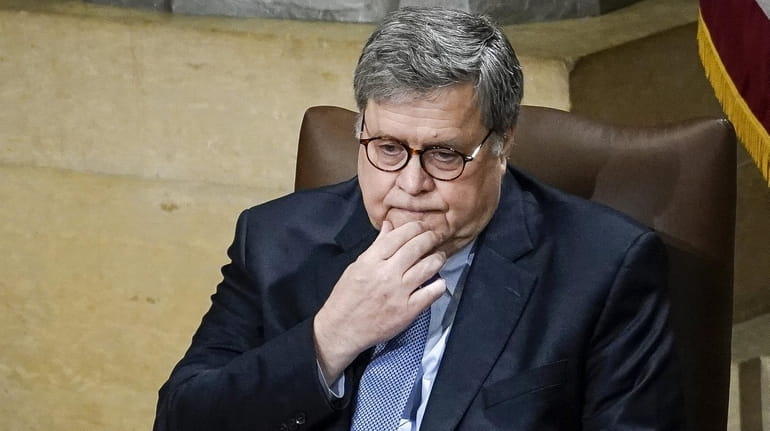Judge bares the obvious by suggesting William Barr spun Mueller report details

Attorney General William Barr on Friday. Credit: Getty Images / Drew Angerer
U.S. District Judge Reggie Walton ruled last week that Attorney General William Barr had presented a "distorted" and "misleading" account of former special counsel Robert Mueller's extensive report on the Russia scandal.
Nobody should have been surprised at the finding from Walton — and certainly not for partisan bias because Republican President George W. Bush appointed him.
Walton had clear reason for his skepticism, based on what's been publicly known for nearly a year.
In April, before a redacted version of the Mueller report was issued, Barr announced that the probe hadn't established that President Donald Trump's campaign "conspired or coordinated with the Russian government in its election interference activities."
After the report's release, however, we learned that Barr's statement told only part of the story.
Barr's summary "failed to indicate" that Mueller found multiple contacts or links between Trump campaign officials and individuals with ties to the Russian government, Walton noted from the U.S. District Court in Washington, D.C.
The report also said that if Mueller and his team were confident Trump "clearly did not commit obstruction of justice," Mueller would have said so. But Mueller did not, and the report did not "exonerate" Trump, as the president has suggested.
The context of Walton's ruling, released Thursday, is key.
The Electronic Privacy Information Center and BuzzFeed News reporter Jason Leopold sued for release of the Mueller report without the Justice Department's redactions.
Walton ruled that he should be given the full report so he can decide in private if the redactions are necessary. That's because he won't take Barr's department at its word.
"The court," Walton wrote, "has grave concerns about the objectivity of the process" by which the department decided its redactions were allowed under the Freedom of Information Act.
The judge suggests in the ruling that Barr set out "to create a one-sided narrative" about the report in Trump's favor. Walton said he "cannot reconcile certain public representations made by Attorney General Barr with the findings of the Mueller report."
The judge's attack on an attorney general's credibility struck some as unique.
Harry Sandick, a former assistant U.S. attorney in Manhattan, told the website Talking Points Memo: “I have never seen an attorney general called out this way before by a judge for making misrepresentations.”
Just as clearly, nobody can say yet whether releasing the redacted information would tell the public anything new or significant about the Russia scandal.
Some information was blacked out based on purported security concerns and potential harm to ongoing investigations.
Are those concerns still valid? This may be one question for Walton to consider when he reads the hidden material he ordered up — and decides whether it should remain buried.

